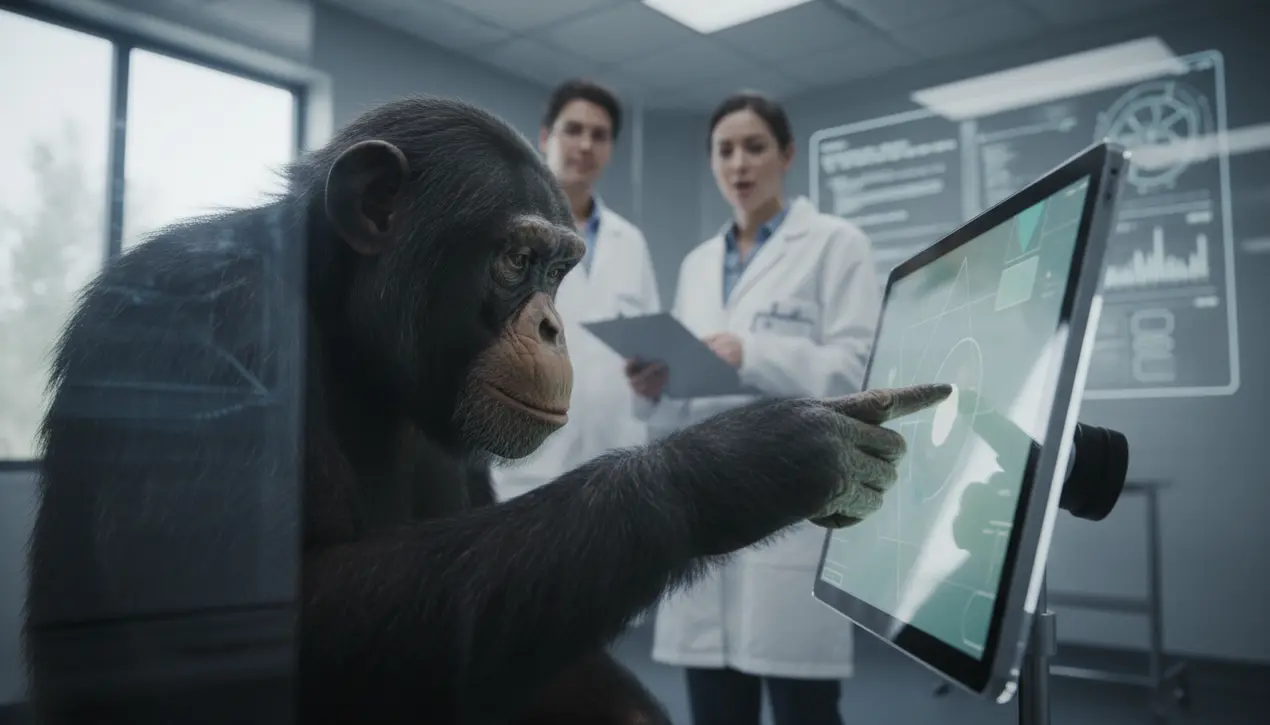
SciencebiologyAnimal Behavior
Chimps shock scientists by changing their minds with new evidence
KE
Kevin White
2 hours ago7 min read
In a revelation that recalibrates our understanding of non-human cognition, chimpanzees have demonstrated a startlingly sophisticated mental faculty once considered a hallmark of human intellect: the capacity to revise their beliefs in the face of new evidence. This isn't mere trial-and-error learning; it's a display of flexible reasoning that mirrors the very processes scientists are desperately trying to encode into artificial intelligence.The experiments, meticulously designed, presented our closest living relatives with a puzzle, offering initial clues to the location of a hidden reward. When subsequent, more reliable information was introduced, the chimps didn't stubbornly stick to their initial choice—they pivoted.They integrated the new data, weighed its credibility against the old, and executed a strategic change of mind. This behavioral shift was then run through sophisticated computational models, which effectively ruled out simpler, instinctual explanations like associative learning or a mere shift in attention.The models confirmed that the primates were engaging in a form of Bayesian updating, a statistical method for updating the probability of a hypothesis as more evidence becomes available. This places their cognitive operations in a rarefied space, suggesting an internal world where beliefs are not fixed but are dynamic, probabilistic constructs.For researchers like Dr. Stephanie Keenan at the Primate Cognition Center, the implications are profound.'We're looking at the foundational architecture of learning itself,' she notes. 'Seeing this in chimpanzees forces us to reconsider the evolutionary origins of critical thought.' This discovery sends ripples across multiple disciplines. In developmental psychology, it provides a new comparative framework for understanding how belief-updating mechanisms emerge in human children, potentially illuminating the stages of cognitive development.For the field of artificial intelligence, the findings are a humbling and crucial benchmark. Current AI systems, especially large language models, often exhibit a form of 'brittleness,' struggling to integrate new, contradictory information without extensive retraining.They lack this fluid, evidence-based reasoning. The chimp's brain, honed by millions of years of evolution, performs this task with an efficiency that our most advanced silicon-based systems cannot yet match.It suggests that the path toward more robust and general AI may lie not just in scaling up data and parameters, but in reverse-engineering the nimble, evidence-driven cognitive algorithms that have been operating in the natural world long before our own species walked the Earth. This isn't just an animal trick; it's a window into the very mechanics of intelligence, with the potential to redefine learning from the nursery to the neural network.
#featured
#chimpanzees
#cognitive science
#belief revision
#animal intelligence
#learning
#research
Stay Informed. Act Smarter.
Get weekly highlights, major headlines, and expert insights — then put your knowledge to work in our live prediction markets.
Related News
Comments
Loading comments...
© 2025 Outpoll Service LTD. All rights reserved.